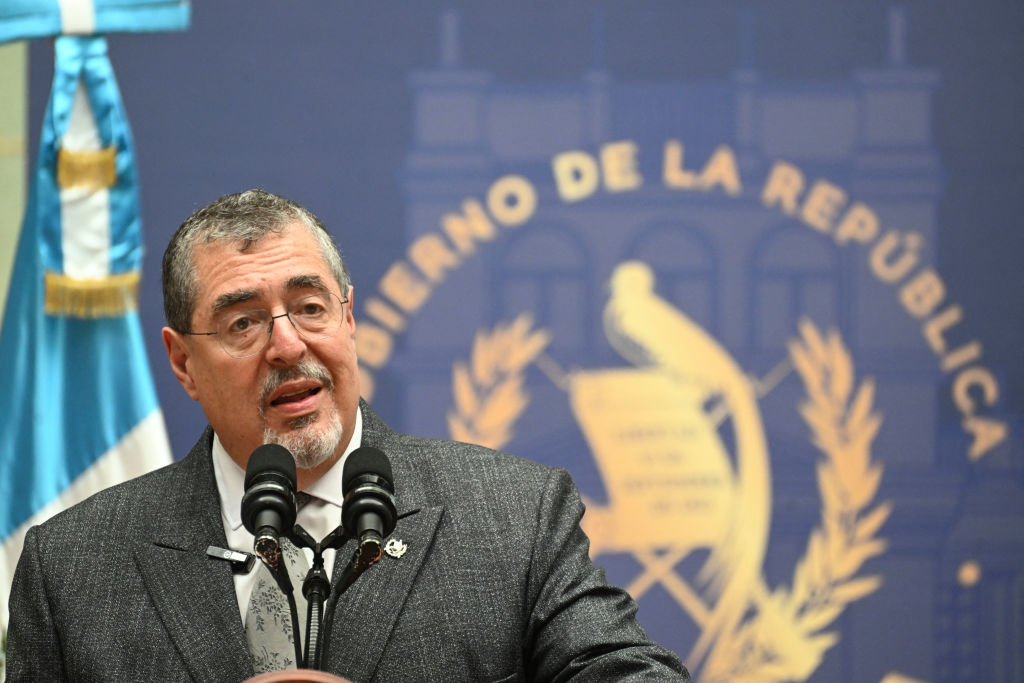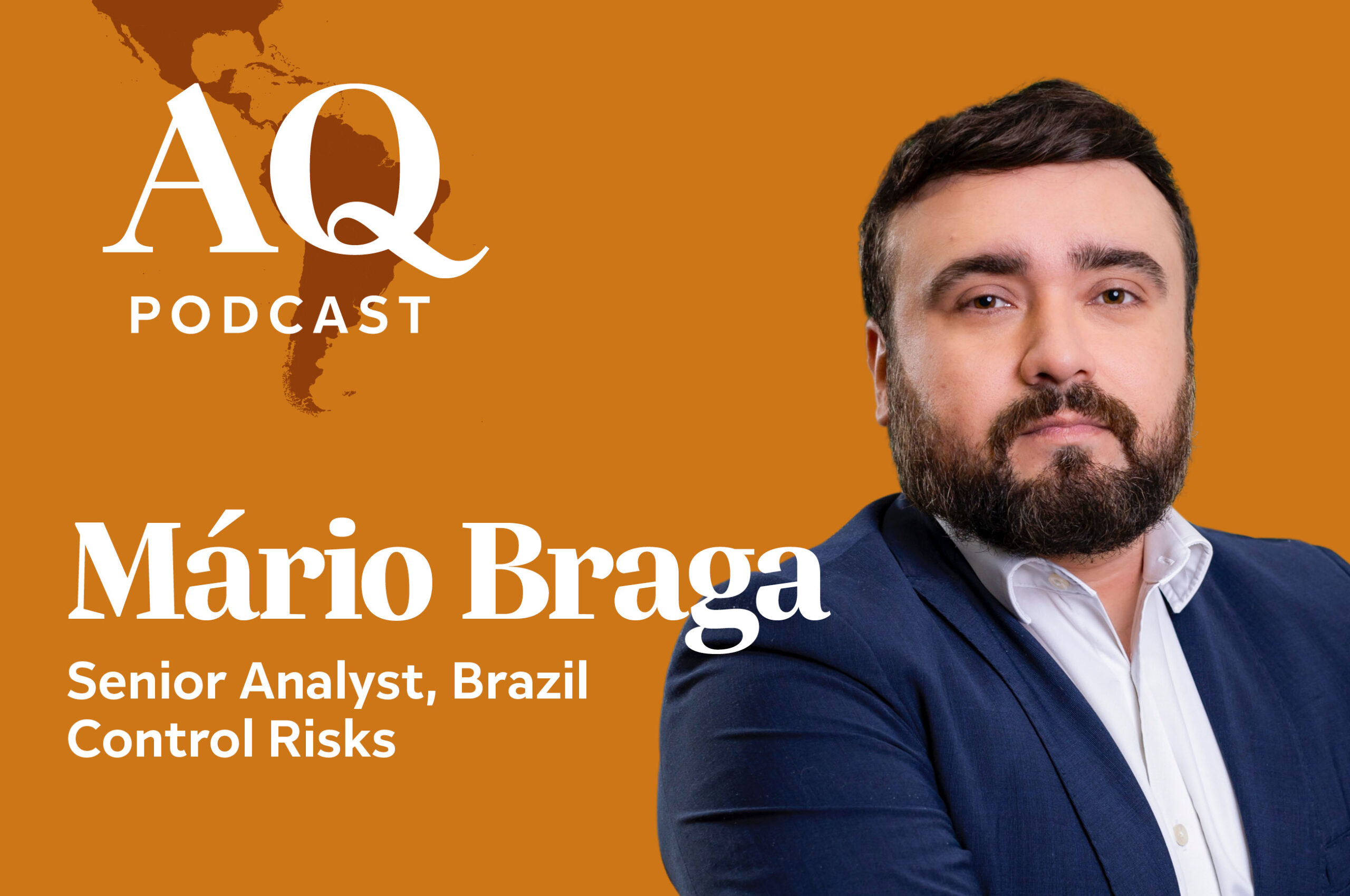Guatemala's Pérez Molina Leading in Presidential Polls
Guatemala's Pérez Molina Leading in Presidential Polls
With former First Lady Sandra Torres out of the race, retired General Otto Pérez Molina faces little competition in the lead up to Guatemala’s September 11 presidential election.
Updated August 23 - With less than three weeks to go before Guatemala’s September 11 presidential election, former General Otto Pérez Molina has emerged as the clear frontrunner. The latest poll, conducted by Borge and Associates and Guatemalan daily El Periódico earlier this month, found that 44.8 percent of Guatemala’s six million voters would cast their ballots for Pérez Molina. Though that figure remains well short of the 50 percent he would need to win the election without going to a runoff in November, the poll shows Pérez Molina still has ample room to expand his lead; 18 percent of those surveyed said they don’t know who they will vote for.
An admirer of Colombia’s Álvaro Uribe, Pérez Molina professes an “firm hand” stance (mano dura) against drug traffickers and violent criminals. During his unsuccessful 2007 campaign for the presidency, Pérez Molina called for a 50 percent expansion of police forces and the reinstitution of the death penalty. His concrete policy proposals remain less clear this time around, but in an interview with Plaza Pública, Pérez Molina described mano dura as “adherence to the law, zero tolerance for breaking the law.”
The hard-line approach may resonate with some voters in Guatemala, a country with a murder rate among the world’s highest, at 41.5 per 100,000. Gangs including the Mara Salvatrucha and Barrio 18 are responsible for murders and extortion, while organized crime syndicates, such Mexico’s Zeta cartel, pose an increasing threat. Illegal groups have killed some 38 people for political reasons in the lead up to the September 11 elections, including 30 candidates for office and an advisor to Pérez Molina. According to the NGO Mirador Electoral, at least 24 of Guatemala’s 333 municipalities face a “high risk of danger” as the elections approach. “Guatemala’s justice system has proved largely incapable of curbing violence and containing criminal mafias and gangs,” Human Rights Watch wrote in its 2011 World Report. Official figures found Guatemala had a 99.75 percent impunity for violent crime as of 2009, the report notes. But confronting the traffickers is difficult when they command resources comparable to those of the government. “We have confiscated $11.5 billion from the traffickers,” Guatemalan President Álvaro Colom said in a recent interview with Al Jazeera English. “Imagine how much money they have at their disposal. $11.5 billion is one and a half times our national budget!”
Through polls rate him highly, Pérez Molina also faces criticisms from rights groups who view the former general as a symbol of the military abuses committed during Guatemala’s civil war. Pérez Molina headed military operations in the department of Quiché in 1982—a time when the military killed local indigenous noncombatants and committed other violations, according to the Report of the Commission for Historical Clarification. In July, the indigenous organization Waqib Kej accused Pérez Molina in a letter sent to the United Nations of committing human rights violations during that time. Pérez Molina denies ordering human rights violations and his campaign website highlights his role as a negotiator in and signatory to Guatemala’s 1996 Peace Accords.
With nearly a dozen candidates in the race, Pérez Molina’s main contender was considered to be former First Lady Sandra Torres, who attempted to run for Guatemala’s presidency despite a constitutional ban prohibiting close family members of the president from running for the office. A poll carried out in late July found that support for Torres grew to 17.2 percent in July from 15.1 percent the previous month, while Pérez Molina’s fell during the same period to 37.6 percent from 42.5 percent. On August 8, however, the country’s highest court announced that despite hastily divorcing Colom in March, Torres could not participate in the race. Torres’ ill-fated attempt to skirt the Constitution left the governing party, National Union of Hope (UNE, in Spanish), without a candidate. The two candidates polling behind Pérez Molina are Swiss-born scientist José Eduardo Suger, with 11.7 percent, and former congressman Manuel Baldizón of the Libertad Democrática Renovada party, with 10.7 percent.
Still, polls may not tell the full story and several candidates won't be included in some of the top televised debates. The August 22 debate was slated to host three candidates and an August 25 debate will include just four. Candidates left out, including Nobel Prize-winner Rigoberta Menchu, signed a letter— featured as a paid advertisement in Guatemala's Prensa Libre—alleging manipulation of polls and the decrying limited debates.
Learn more:
- See Plaza Pública’s July 25 interview with Otto Pérez Molina.
- Read a profile of Pérez Molina in Guatemalan daily La Prensa Libre.
- See the campaign websites for Otto Pérez Molina, José Eduardo Suger, and Manuel Baldizón.







